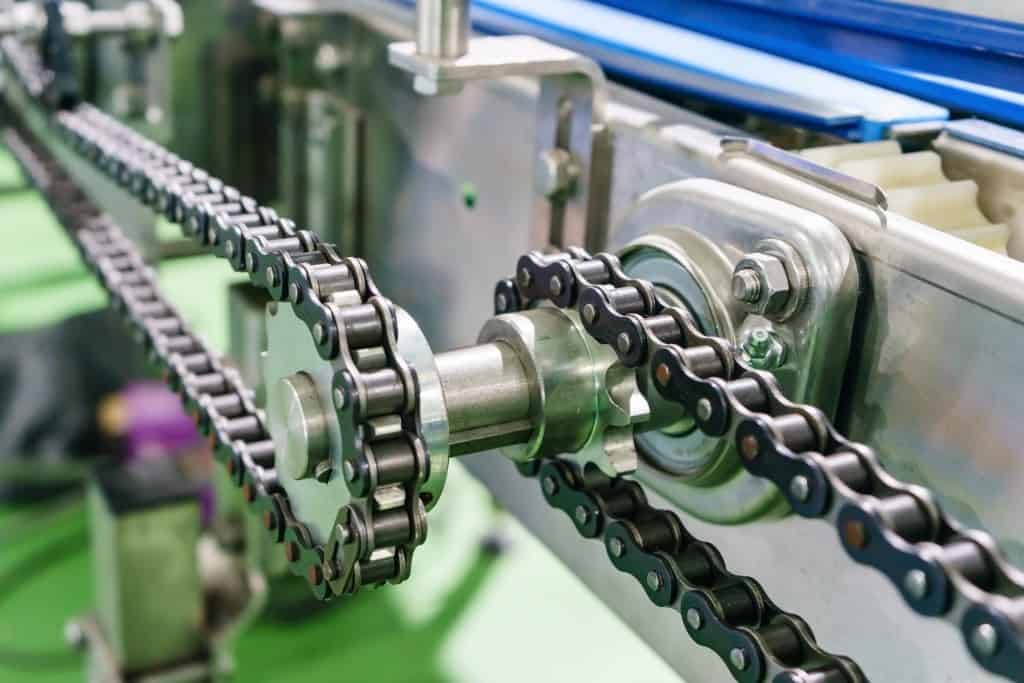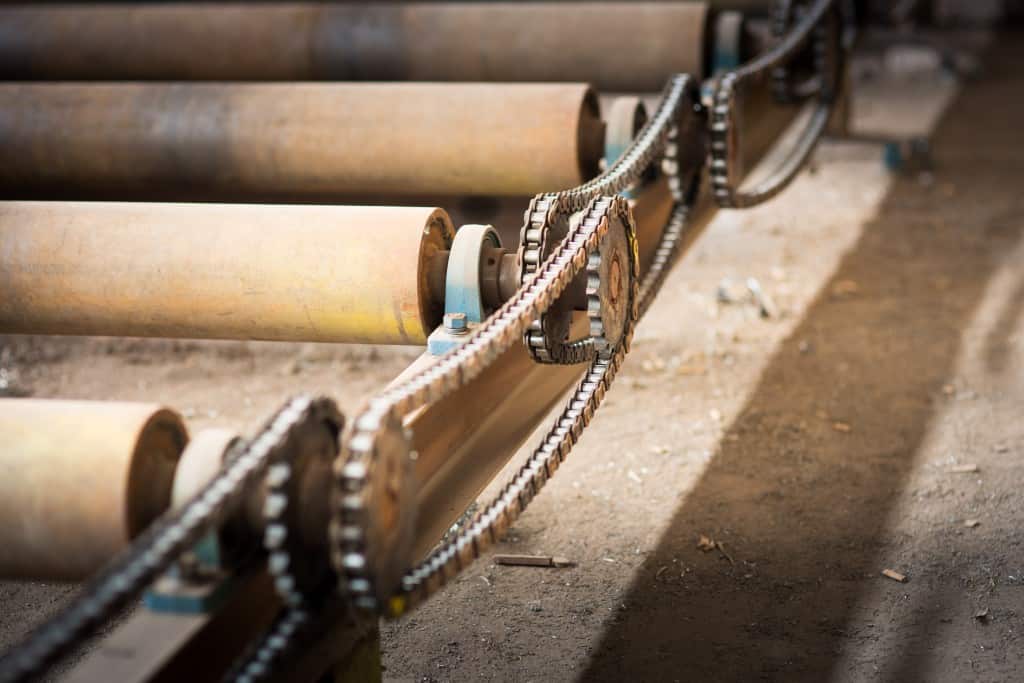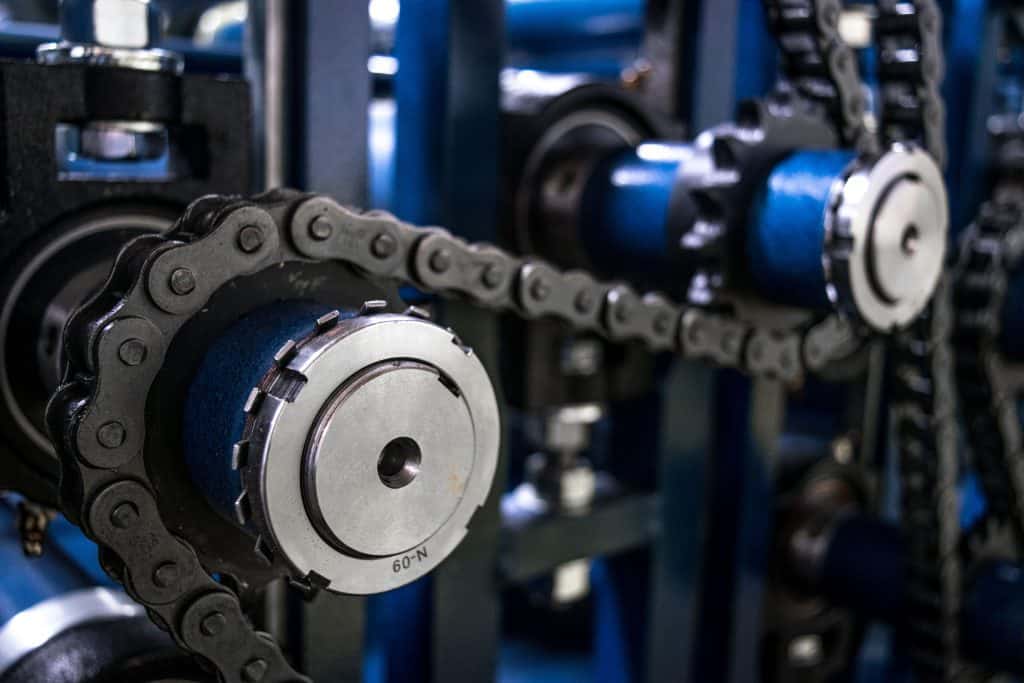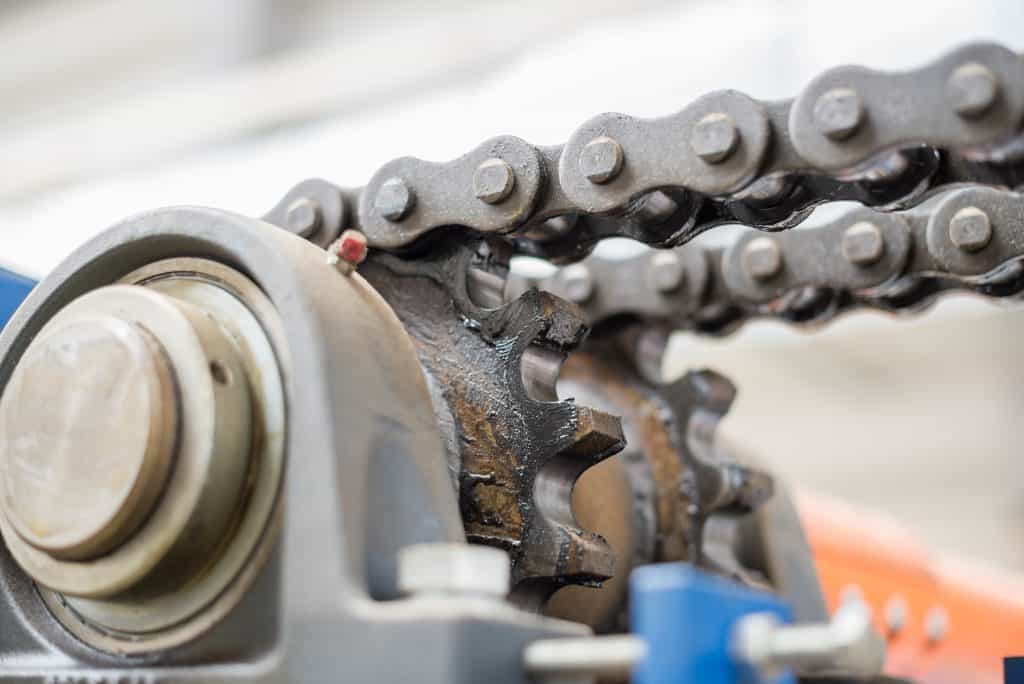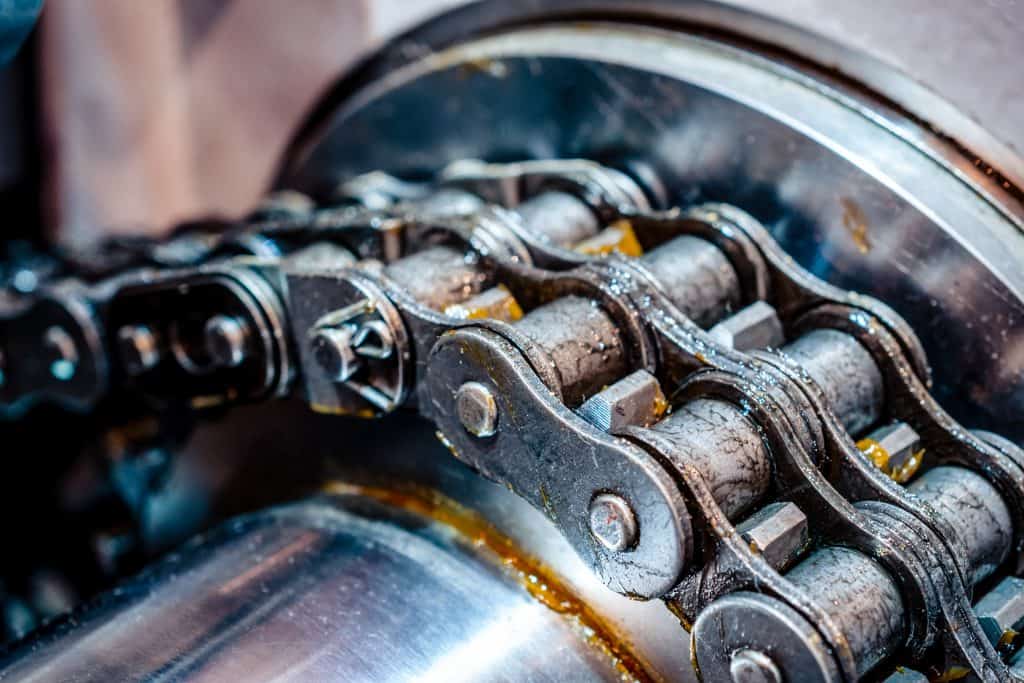Excessive Roller Chain Noise: Sources and Solutions
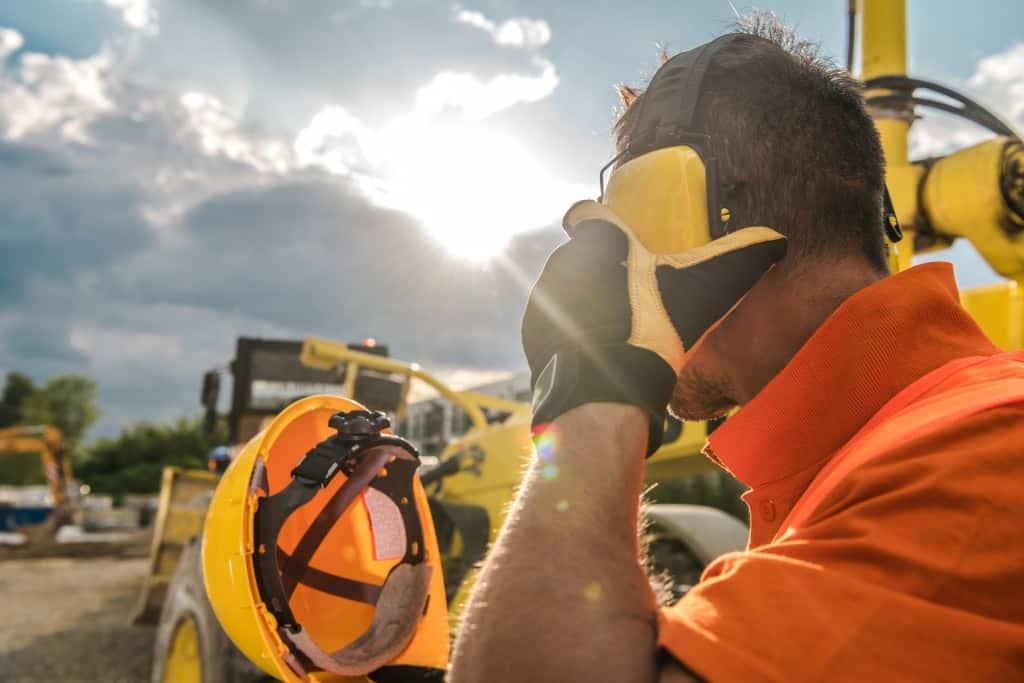
Roller chain is an essential part of your drivetrain. Ideally, the chain will run smoothly, quietly, and efficiently. Excessive roller chain noise is a warning sign of early fatigue or mechanical problems that can lead to problems down the road.
Avoiding failure is key.
Some noise is normal for a chain drive. During operation, the interaction between bushing and roller will create noise, mostly as the roller is falling into the sprocket gullet. These actions are where a majority of the noise will originate. Typically these drives can and will be noisy, but if you hear excessive or unusual sounds from your drive, it’s time to inspect your roller chain.
Let’s look at some possible causes for the excessive noise you’re hearing.
What is Normal Noise?
When your chain engages the sprockets in your application, it will make noise. The roller chain striking the tooth bottom creates a metal on metal noise you’d expect. Additionally, as roller chain engages and disengages a sprocket, the interaction between roller, bushing, and pin can all create noise. With a lack of or low-quality lubrication, these interactions will become louder.
For example, consider a 50 pitch roller chain drive. Sound levels start at or around 65 decibels (dB) in a well-maintained system. This same drive has the potential to become as loud as 85dB, which is similar to a diesel truck going 45mph or a milling machine in operation. Prolonged exposure can be damaging.

Belts and pulleys are quieter than roller chains and sprockets. V-belts are quieter than timing belts, which can make a high-frequency noise at higher speeds. If noise pollution is a serious concern, perhaps a belt drive is a better option.
Can you Decrease Normal Chain Noise? Yes!
There are some steps you can take to decrease the noise level of a drive that seems as if it’s working correctly. The noise is coming from the point where the chain meets the sprocket, so one way to reduce noise is to reduce the force at the point they meet. The strike energy is minimized through the use of a sprocket with more teeth, slowing down the chain speed.
Another way to reduce noise is by maintaining a well-lubricated chain drive – something you should focus on regardless to keep your drive operating smoothly. Oil provides a buffer between the metal parts, thus decreasing wear and tear. As an added benefit, more lubrication at the bottom of the sprocket tooth and the gap between the bushing and roller will make the drive quieter – nearly 10dB quieter in the example above.
What if Your Roller Chain is Making Unusual Noises?
The first thing to check if you drive is making odd noises is the condition of the components. Any parts showing excessive wear needs replacing. Double-checking the alignment of your sprockets and shafts is also valuable.
The shafts must be parallel to one another, and the sprocket faces must be in alignment. Be sure to check the shafts and sprockets at multiple points. If they are not in alignment, you’ll want to correct the error. These fixes should reduce the excess noise you’re hearing and prolong chain life.


Is it Time for Maintenance?
Regular maintenance is crucial, allowing you to find and fix the little things that go wrong before they become more problematic. Your sprockets and chain aren’t the only things affected by all that chain movement: chain guards and bearings can become loosened over time. Tightening loosened fasteners should decrease your chain noise and get everything back in working order.
Do you Have Enough Lubrication?
As we discussed in the previous example, lubrication makes a big difference in chain lifespan. If your drive isn’t well lubricated, it can’t possibly work well. Both the type of lubrication used and the distribution system are fundamental to performance. If you find your roller chain often appears to need oil, it may be time to get a new lubrication system.
High chain speeds require more lubrication. Chain size, small sprocket RPM, tooth count, and environmental factors also play a role in choosing the proper oil and lubrication system. We maintain that the better a lubrication system is, the more likely the drive can achieve and sustain top chain speeds.

While roller chain drives are inherently noisy, there are some ways to mitigate this. Begin by checking the alignment of the drive system, followed by a check of the components. Comprehensive lubrication systems are hugely beneficial, not just relating to noise. Finally, the use of larger sprockets can also minimize noise.
